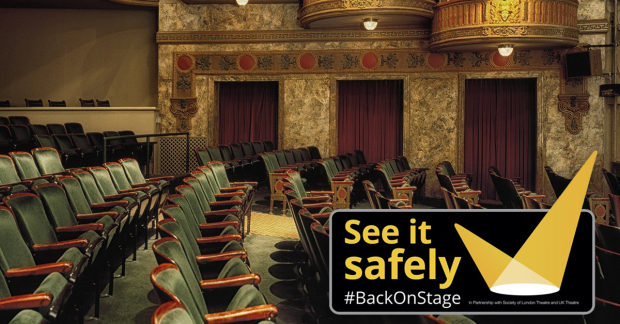New "See It Safely" campaign launched to bolster audience confidence
Producers are taking extra steps to guarantee audience safety

A new campaign has been launched to inspire audience confidence as indoor venues begin to re-open with social distancing measures
Titled "See It Safely" and launched by SOLT and UK Theatres, the campaign will provide badges for arts buildings that are Covid-compliant, while also offering training, support and advice as well as an animated safety video.
As part of the initiative, there is a greater push for more stringent ticketing principles, ensuring that audiences feel both safe and safe in the knowledge that, if they were to feel unwell and unable to attend a performance, they were entitled to exchange their ticket for another date. Furthermore, in the event of cancellation, they'd be able to either receive a credit voucher or refund.
SOLT president Kenny Wax, who is also the producer on two shows reopening this autumn (Six and The Play That Goes Wrong), said: "I am delighted that theatre fans have responded so positively and performances are selling extremely well.
I expect both productions of Six (the show is also opening in Salford for Christmas) to sell out their entire runs and such positive sales give me confidence to open my other shows including The Play That Goes Wrong at the Duchess Theatre. There is clearly huge pent up demand for live theatre and it is wonderful to give audiences something to look forward to as we head into the Christmas season."
Over 140 theatres have already used the toolkit, with SOLT and UK Theatre chief executive Julian Bird saying: "Going to the theatre is a very organised and civilised affair mainly due to its ticketed nature (it is simple for venues to track+trace exactly who is in the building and when) and well trained front of house staff are on hand throughout the experience to ensure that everyone is considerate and complies with the safety measures in place.
"One way systems and strict entrance and exit areas make our venues easily adaptable to the implementation of new safety measures, such as temperature checks, contactless payments, face masks and hand sanitizer stations. There is also minimal face to face and social contact as most audiences face forward."












